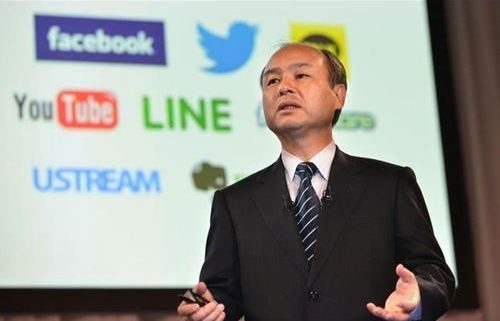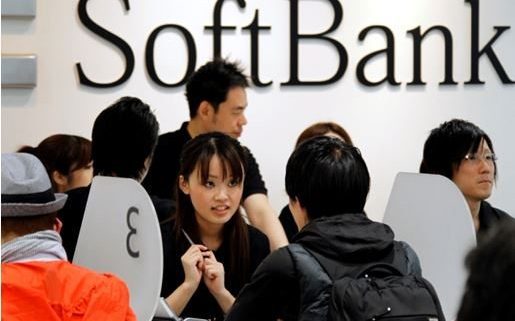As a potentially profitable opportunity presents itself, John will send you an alert with specific trade information as to what should be bought, when to buy it, and at what price. Read more
Global Market Comments
December 16, 2013
Fiat Lux
Featured Trade:
(REPORT FROM THE FROZEN WASTELANDS OF THE WEST)
While the Diary of a Mad Hedge Fund Trader focuses on investment over a one week to six-month time frame, Mad Day Trader, provided by Jim Parker, will exploit money-making opportunities over a brief ten minute to three day window. It is ideally suited for day traders, but can also be used by long-term investors to improve market timing for entry and exit points.
Global Market Comments
December 13, 2013
Fiat Lux
Featured Trade:
(DECEMBER 18 GLOBAL STRATEGY WEBINAR),
(MY MARKET TAKE FOR THE REST OF 2013),
(DOUBLING UP ON SOFTBANK), (SFTBY)
(SPY), (XLF), (TLT), (FXY), (SFTBY), (AAPL),
(TESTIMONIAL)
SoftBank Corp. (SFTBY)
SPDR S&P 500 (SPY)
Financial Select Sector SPDR (XLF)
iShares 20+ Year Treasury Bond (TLT)
CurrencyShares Japanese Yen Trust (FXY)
Apple Inc. (AAPL)
I can?t believe how fast the year has gone by. It seems like only yesterday that I was riding the transcontinental railroad from Chicago to San Francisco, writing my 2013 All Asset Class Review. Now 2014 is at our doorstep.
As usual, the market has got it all wrong. There is not going to be a taper by the Federal Reserve next week. If there is, it will be only $5-$10 billion, which means that $70-$75 billion a month in Fed bond buying continues. Either way it is a win-win.
However, managers are eternally loath to trade against an unknown, hence the weakness we are seeing this week. I think that we have entered another one of those sideways corrections that has been a hallmark of the market all year, and that there is a reasonable chance that we saw the low of the entire move down this morning at 1,780 in the S&P 500.
That sets up a dead, range trading market into the Fed decision next Wednesday afternoon. Once their Solomon like choice is out, it will be off to the races for the markets once again, probably all the way until 2014.
However, we are heading in the Christmas holidays, when volume and volatility shrivel to a shadow of its former selves, with daily ranges often falling within 50 Dow points. So it is important to have a large short volatility element to your portfolio.
That way, you will make money on every flat day, of which there should be many. That?s why I have 70% of my current model-trading portfolio invested in call spreads.
My current holding in the (SPY) has me profitable at all points above $175.68. If we move below that, any losses should be more than offset by profits thrown off by the rest of the portfolio. The same is true for my call spread in the financial ETF (XLF).
The Japanese yen is clearly in free fall, probing new lows almost every day. That should take the (FXY) to $95, and explains my triple weight 30% holding in the area. Bonds (TLT) just can?t get a break, failing to rally over $105 for the third time. Lower levels beckon, making my bear put spread look pretty good, my second one this month.
With a dramatically weakening yen, you have to add to Japanese equities, which will benefit hugely. That?s why I doubled up on my position in Masayoshi Son?s Softbank (SFTBY) this morning. The day they announce the Ailibaba IPO, probably early next year, these shares should be up 10%-20%.
To summarize, this portfolio is perfectly set up for the following: ?A sideways move for four more trading days, then an upside breakout after the Fed decision, then going to sleep inside a slow grind up over Christmas and New Years.
The grand finale should come on January 2, the first trading day of 2014, when I expect the value of the portfolio to pop a full 5% or more. This will be delivered by a massive new wave of capital into the markets, which for calendar and legal reasons couldn?t be invested until this day.
What will they buy? Everything that worked last year. After all, that?s why these managers were hired. Why not start the New Year with a bang, and then spend the rest of the year trading against that profit.
It certainly worked this year.
 Has It Been That Long?
Has It Been That Long?
I have always been a big fan of buying a dollar for 30 cents. That appears to be the opportunity now presented by the Japanese software giant, Softbank (SFTBY).
This gorilla of the Internet space was founded and run by my old friend, Masayoshi Son, who many refer to as a combination of the Jeff Bezos and the Bill Gates of Japan. I have known Mas, as his friends call him, for 30 years, meeting him, of all places, at a University of California Alumni Association meeting. Mas received his BA in economics from Berkeley in 1980.
In three decades, Mas has turned an obscure, hard copy Japanese computer hobbyist magazine into today?s massive online empire. You may know him as the organizer of the huge Comdex conferences in Las Vegas every January, the Woodstock of technology gatherings. Today, Mas has an estimated personal net worth $9 billion, not bad for a kid who wore the same pair of ragged Levis to his economics classes every day.
The really interesting thing about Softbank right now is not what Mas is doing, but what he owns. That includes a 37% stake in the Chinese Internet giant, Alibaba, which boasts an overwhelming 80% market share in the Middle Kingdom.
The Hangzhou based Alibaba is actually a group of Internet-based e-commerce businesses including business-to-business online web portals, online retail and payment services, a shopping search engine and data-centric cloud computing services. Think of it as Amazon (AMZN), eBay (EBAY), Google (GOOG), and Oracle (ORCL) all wrapped into one.
In 2012, two of Alibaba?s portals together handled 1.1 trillion Yuan ($170 billion) in sales, more than competitors eBay and Amazon.com combined.
Its sales account for no less than 3% of China?s total GDP. Yikes! To learn more about their website please: http://news.alibaba.com/specials/aboutalibaba/aligroup/index.html.
Online commerce in China is now growing faster than in any other place on the planet, including the US. Some 5% of retail transactions in the People?s Republic take place on the Internet, and that is expected to grow to 25% over the next three years. By comparison, it took online business in America 15 years to reach that market share.
What is happening in China now is truly fascinating. They are leapfrogging traditional brick and mortar stores, going straight from barter to online purchases, completely skipping the Wal-Mart stage of the retail evolution. I saw the same thing happen during the early nineties, when eastern Europeans jumped straight from having no phones to mobile ones, bypassing decades of unreliable and indifferent landline service.
The value of Alibaba is anyone?s guess as the company is still private. However, my former employers at The Economist magazine estimate that it is worth anywhere from $55-$120 billion. What this means is that you can buy Softbank now purely for the value of its Alibaba ownership, and get everything else the company does in the online universe for free.
But wait! It gets better. Softbank also owns major stakes in Yahoo, whose shares are up a gob smacking 157% since last year (Thank you Marissa Meyer!). It owns a major chunk of Sprint (S), which has gained a mind blowing 325% since 2012. Can Mas pick them, or what? Softbank also owns pieces of Japan Cellular and many other companies.
Add it all up together, and you get a Softbank that is worth at least $250 billion, almost triple its current $97 billion market capitalization. In other words, it?s a steal at this price.
Yes, you may say, this all sounds great. But how do I buy shares in Japan in yen? Easy. Softbank trades on the pink sheets in the US (hence the five letter ticker symbol) and is denominated in US dollars. Normally this means nothing, as liquidity in the pink sheets is notoriously poor.
Not so for (SFTBY), which saw 1.6 million shares worth $67 million trade around $42 a share on a slow Friday with a reasonably narrow spread. You may not be able to margin these, but at least you can get them. You also have some yen exposure here, as these shares are tied to the domestic shares in Japan. As for the big hedge funds, they have to go to Tokyo to get the size they want, and then hedge out their yen risk.
OK, OK, you say. Great story. But the road to perdition is paved with fabulous value plays that were never realized in the marketplace. This thing could stay cheap forever, like Apple (AAPL).
Aha! I got you! Alibaba is about to go public in the US, with Goldman Sachs now polling major institutional investors about potential interest. Given the chance to buy an Amazon clone at ten year ago prices, this IPO will be a blockbuster, making the recent Twitter (TWTR) float pale by comparison.
Did I mention that my buddy, Dan Loeb of hedge fund giant Third Point Partners, totally agrees with me, and has bought $1 billion worth of Softbank shares already? In fact, many believe that Alibaba could be the Apple of this decade, about to deliver a tenfold increase in its share price.
That seems to be the right thing to do this year.
 Hitch Your Wagon to Mas
Hitch Your Wagon to Mas
As a potentially profitable opportunity presents itself, John will send you an alert with specific trade information as to what should be bought, when to buy it, and at what price. This is your chance to ?look over? John Thomas? shoulder as he gives you unparalleled insight on major world financial trends BEFORE they happen.

Buy Softbank Shares (SFTBY) at $43.78 or best
Opening Trade
12-12-2013
Portfolio weighting: 10%
Number of Shares = 228 shares
I have always been a big fan of buying a dollar for 30 cents. That appears to be the opportunity now presented by the Japanese software giant, Softbank (SFTBY).
This gorilla of the Internet space was founded and run by my old friend, Masayoshi Son, who many refer to as a combination of the Jeff Bezos and the Bill Gates of Japan. I have known Mas, as his friends call him, for 30 years, meeting him, of all places, at a University of California Alumni Association meeting. Mas received his BA in economics from Berkeley in 1980.
In three decades, Mas has turned an obscure, hard copy Japanese computer hobbyist magazine into today?s massive online empire. You may know him as the organizer of the huge Comdex conferences in Las Vegas every January, the Woodstock of technology gatherings. Today, Mas has an estimated personal net worth $9 billion, not bad for a kid who wore the same pair of ragged Levis to his economics classes every day.
The really interesting thing about Softbank right now is not what Mas is doing, but what he owns. That includes a 37% stake in the Chinese Internet giant, Alibaba, which boasts an overwhelming 80% market share in the Middle Kingdom.
The Hangzhou based Alibaba is actually a group of Internet-based e-commerce businesses including business-to-business online web portals, online retail and payment services, a shopping search engine and data-centric cloud computing services. Think of it as Amazon (AMZN), eBay (EBAY), Google (GOOG), and Oracle (ORCL) all wrapped into one.
In 2012, two of Alibaba?s portals together handled 1.1 trillion Yuan ($170 billion) in sales, more than competitors eBay and Amazon.com combined.
Its sales account for no less than 3% of China?s total GDP. Yikes! To learn more about their website please: http://news.alibaba.com/specials/aboutalibaba/aligroup/index.html.
Online commerce in China is now growing faster than in any other place on the planet, including the US. Some 5% of retail transactions in the People?s Republic take place on the Internet, and that is expected to grow to 25% over the next three years. By comparison, it took online business in America 15 years to reach that market share.
What is happening in China now is truly fascinating. They are leapfrogging traditional brick and mortar stores, going straight from barter to online purchases, completely skipping the Wal-Mart stage of the retail evolution. I saw the same thing happen during the early nineties, when eastern Europeans jumped straight from having no phones to mobile ones, bypassing decades of unreliable and indifferent landline service.
The value of Alibaba is anyone?s guess as the company is still private. However, my former employers at The Economist magazine estimate that it is worth anywhere from $55-$120 billion. What this means is that you can buy Softbank now purely for the value of its Alibaba ownership, and get everything else the company does in the online universe for free.
But wait! It gets better. Softbank also owns major stakes in Yahoo, whose shares are up a gob smacking 157% since last year (Thank you Marissa Meyer!). It owns a major chunk of Sprint (S), which has gained a mind blowing 325% since 2012. Can Mas pick them, or what? Softbank also owns pieces of Japan Cellular and many other companies.
Add it all up together, and you get a Softbank that is worth at least $250 billion, almost triple its current $97 billion market capitalization. In other words, it?s a steal at this price.
Yes, you may say, this all sounds great. But how do I buy shares in Japan in yen? Easy. Softbank trades on the pink sheets in the US (hence the five letter ticker symbol) and is denominated in US dollars. Normally this means nothing, as liquidity in the pink sheets is notoriously poor.
Not so for (SFTBY), which saw 1.6 million shares worth $67 million trade around $42 a share on a slow Friday with a reasonably narrow spread. You may not be able to margin these, but at least you can get them. You also have some yen exposure here, as these shares are tied to the domestic shares in Japan. As for the big hedge funds, they have to go to Tokyo to get the size they want, and then hedge out their yen risk.
OK, OK, you say. Great story. But the road to perdition is paved with fabulous value plays that were never realized in the marketplace. This thing could stay cheap forever, like Apple (AAPL).
Aha! I got you! Alibaba is about to go public in the US, with Goldman Sachs now polling major institutional investors about potential interest. Given the chance to buy an Amazon clone at ten year ago prices, this IPO will be a blockbuster, making the recent Twitter (TWTR) float pale by comparison.
Did I mention that my buddy, Dan Loeb of hedge fund giant Third Point Partners, totally agrees with me, and has bought $1 billion worth of Softbank shares already? In fact, many believe that Alibaba could be the Apple of this decade, about to deliver a tenfold increase in its share price.
That seems to be the right thing to do this year.
Here is the specific trades you need to execute this position:
Buy 228 shares of (SFTBY) at????.$43.78
 Hitch Your Wagon to Mas
Hitch Your Wagon to Mas
As a potentially profitable opportunity presents itself, John will send you an alert with specific trade information as to what should be bought, when to buy it, and at what price. This is your chance to ?look over? John Thomas? shoulder as he gives you unparalleled insight on major world financial trends BEFORE they happen. Read more
Legal Disclaimer
There is a very high degree of risk involved in trading. Past results are not indicative of future returns. MadHedgeFundTrader.com and all individuals affiliated with this site assume no responsibilities for your trading and investment results. The indicators, strategies, columns, articles and all other features are for educational purposes only and should not be construed as investment advice. Information for futures trading observations are obtained from sources believed to be reliable, but we do not warrant its completeness or accuracy, or warrant any results from the use of the information. Your use of the trading observations is entirely at your own risk and it is your sole responsibility to evaluate the accuracy, completeness and usefulness of the information. You must assess the risk of any trade with your broker and make your own independent decisions regarding any securities mentioned herein. Affiliates of MadHedgeFundTrader.com may have a position or effect transactions in the securities described herein (or options thereon) and/or otherwise employ trading strategies that may be consistent or inconsistent with the provided strategies.






















